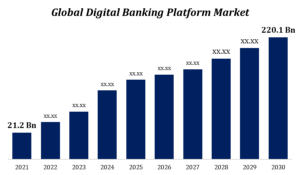RegTech: How Fintech Is Transforming Regulatory Compliance and Risk Management
In the dynamic world of finance, staying compliant with a labyrinth of regulations and managing risks effectively are paramount for financial institutions. Enter RegTech, a fusion of “regulatory technology,” which leverages the power of fintech to streamline regulatory compliance and enhance risk management processes. In this article, we will explore how RegTech is reshaping the financial landscape by providing innovative solutions that improve efficiency, reduce costs, and ensure adherence to regulatory standards.
Understanding RegTech:
RegTech refers to the use of technology, including artificial intelligence, data analytics, blockchain, and more, to assist financial institutions in meeting regulatory requirements efficiently and effectively. It addresses challenges arising from the increasing complexity of regulations and the need for real-time monitoring and reporting.
Benefits of RegTech:
- Efficiency and Automation: RegTech automates manual compliance tasks, reducing human error and freeing up resources for more strategic activities.
- Real-time Monitoring: RegTech solutions offer real-time monitoring of transactions and data, helping detect potential compliance breaches promptly.
- Data Analytics: Advanced analytics and machine learning enable institutions to identify patterns and anomalies in large datasets, improving risk assessment.
- Cost Savings: By automating processes and reducing manual labor, RegTech lowers operational costs associated with compliance.
- Enhanced Accuracy: Automation and digital processes significantly reduce errors in regulatory reporting and documentation.
Applications of RegTech:
- AML and KYC Compliance: RegTech solutions enable more efficient anti-money laundering (AML) and know your customer (KYC) processes by automating identity verification and risk assessment.
- Transaction Monitoring: Real-time transaction monitoring using RegTech helps identify suspicious activities and prevent financial crimes.
- Risk Assessment: RegTech offers improved risk assessment through data analysis, helping institutions make better-informed decisions.
- Reporting and Auditing: Automated reporting tools streamline the creation of audit-ready reports and submissions to regulatory bodies.
Challenges and Considerations:
- Data Security and Privacy: Handling sensitive financial data requires robust security measures to ensure confidentiality and compliance with data protection regulations.
- Integration with Legacy Systems: Integrating RegTech solutions with existing legacy systems can be complex and require careful planning.
- Regulatory Changes: RegTech solutions need to be adaptable to changing regulatory landscapes to remain effective.
- Cultural Shift: Implementing RegTech may require a cultural shift within organizations to embrace technology-driven compliance and risk management.
Future of RegTech:
- AI and Advanced Analytics: Continued advancements in AI and analytics will enhance RegTech’s predictive capabilities, improving risk assessment and compliance.
- Blockchain for Transparency: Blockchain technology can enhance transparency and data integrity, enabling more efficient and secure regulatory reporting.
- Global Adoption: RegTech solutions will become more standardized and globally adopted as regulators recognize their benefits.
RegTech is reshaping how financial institutions approach regulatory compliance and risk management. By harnessing the power of technology, RegTech offers unprecedented levels of efficiency, accuracy, and real-time monitoring, which are essential in today’s fast-paced financial environment. As the regulatory landscape continues to evolve, the integration of RegTech solutions will become increasingly vital, allowing financial institutions to navigate complex compliance requirements while remaining competitive and innovative in a rapidly changing industry.


































